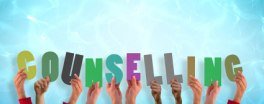Counseling

Skill

Career

Mission-Education
Process of acquiring knowledge, skills, values, and attitudes through formal or informal methods. It is a fundamental aspect of personal and societal development
. Formal Education: Formal education refers to structured learning provided by educational institutions such as schools, colleges, and universities. It typically follows a curriculum and leads to academic qualifications, degrees, or certifications. 2. Informal Education: Informal education includes learning that occurs outside of formal institutions, often through self-directed or experiential learning. Informal education can be acquired through hobbies, reading, travel, and life experiences. 3. Lifelong Learning: Lifelong learning is the concept of continuous personal and professional development throughout one's life. It involves acquiring new knowledge and skills to adapt to changing circumstances and remain competitive. 4. Primary, Secondary, and Higher Education: Education is often categorized into primary (elementary), secondary (high school), and higher education (college or university). These levels of education serve as building blocks for an individual's intellectual and personal development. 5. Subjects and Disciplines: Education encompasses various subjects and disciplines, including mathematics, science, literature, history, art, and social sciences. Students can choose areas of specialization and expertise based on their interests and career goals. 6. Teachers and Instructors: Educators, including teachers and professors, play a critical role in facilitating the learning process. They design curricula, deliver lectures, provide guidance, and assess student progress. 7. Education Systems: Education systems vary from one country to another, and even within regions or states. Systems can differ in terms of curriculum, grading, teaching methods, and school governance. 8. Education Technology: Technology has become integral to education, with the use of computers, the internet, and educational software for learning and teaching. Online courses and e-learning platforms have become more accessible. 9. Access to Education: Ensuring equitable access to education is a global challenge. Many initiatives aim to provide quality education to underserved and marginalized populations. Universal primary education is a key goal outlined in the United Nations Sustainable Development Goals. 10. Education for Personal and Societal Development: Education contributes to personal growth by fostering critical thinking, problem-solving, and communication skills. It also plays a pivotal role in societal development by producing an educated and skilled workforce, promoting social cohesion, and advancing scientific and cultural knowledge. 11. Education and Employment: Education is often a prerequisite for many careers and job opportunities. It can enhance employability and lead to better job prospects and higher earning potential. 12. Lifelong Benefits: The benefits of education extend beyond academic achievement and employment. Education can lead to improved health, increased civic engagement, and a deeper understanding of the world. 13. Challenges in Education: Challenges in education include disparities in access to quality education, funding issues, curriculum relevance, and adapting to changing technology and global trends. Education is a powerful tool that empowers individuals, enriches lives, and contributes to the development and progress of societies. It is considered a fundamental human right, and efforts are continually made to ensure that education is accessible, inclusive, and of high quality for all. Regenerate